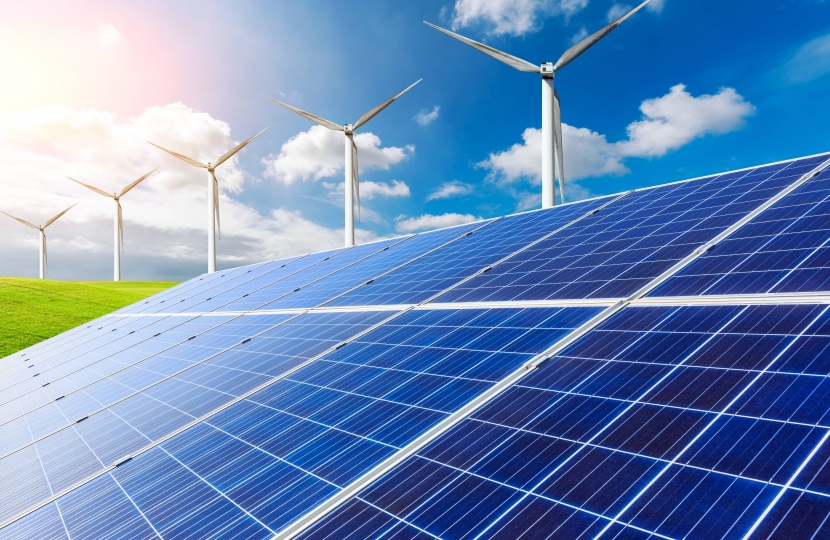
Mel Stride MP has given his backing to recommendations put forward by the Climate Change Committee (CCC) – an independent, statutory body which advises advise the UK and devolved governments on emissions targets – to cut 78% of UK carbon emissions by 2035 compared to 1990 levels. It would bring forward the UK’s previous 80% target by nearly 15 years.
After attending a briefing by the CCC Mel said:
“The Prime Minister recently committed the UK to a 68% cut in UK emissions by 2030, compared to 1990 levels. This is a more ambitious target than any other major economy and one which I hope will inspire other countries around the world to follow suit. The CCC has looked ahead a little further at what can be achieved by 2035 and how we can get there. I welcome their recommendations which set out an ambitious path to net zero.”
The CCC’s full 448 page report, ‘The Sixth Carbon Budget, The UK’s path to net zero’, can be found at www.theccc.org.uk. Its key recommendations are:
- Take up of low-carbon solutions. People and businesses will choose to adopt low-carbon solutions, as high carbon options are progressively phased out. By the early 2030s all new cars and vans and all boiler replacements in homes and other buildings are low-carbon – largely electric. By 2040 all new trucks are low-carbon. UK industry shifts to using renewable electricity or hydrogen instead of fossil fuels, or captures its carbon emissions, storing them safely under the sea.
- Expansion of low-carbon energy supplies. UK electricity production is zero carbon by 2035. Offshore wind becomes the backbone of the whole UK energy system, growing from the Prime Minister’s promised 40GW in 2030 to 100GW or more by 2050. New uses for this clean electricity are found in transport, heating and industry, pushing up electricity demand by a half over the next 15 years, and doubling or even trebling demand by 2050. Low-carbon hydrogen scales-up to be almost as large, in 2050, as electricity production is today. Hydrogen is used as a shipping and transport fuel and in industry, and potentially in some buildings, as a replacement for natural gas for heating.
- Reducing demand for carbon-intensive activities. The UK wastes fewer resources and reduces its reliance on high-carbon goods. Buildings lose less energy through a national programme to improve insulation across the UK. Diets change, reducing our consumption of high-carbon meat and dairy products by 20% by 2030, with further reductions in later years. There are fewer car miles travelled and demand for flights grows more slowly. These changes bring striking positive benefits for health and well-being.
- Land and greenhouse gas removals. There is a transformation in agriculture and the use of farmland while maintaining the same levels of food per head produced today. By 2035, 460,000 hectares of new mixed woodland are planted to remove CO2 and deliver wider environmental benefits. 260,000 hectares of farmland shifts to producing energy crops. Woodland rises from 13% of UK land today to 15% by 2035 and 18% by 2050. Peatlands are widely restored and managed sustainably.

